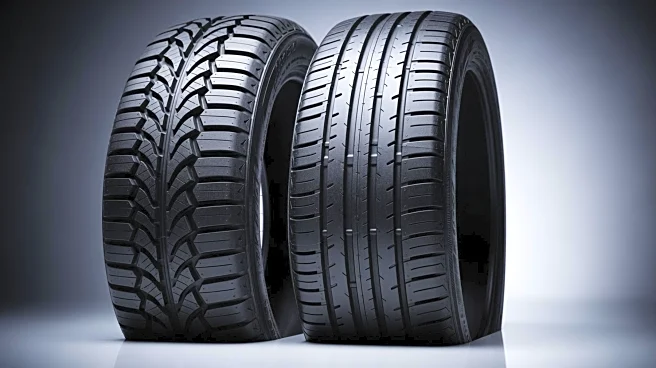What is the story about?
What's Happening?
The electric vehicle (EV) tax credit, a key incentive for promoting EV adoption in the U.S., has been officially terminated following the passage of President Trump's spending bill. Initially introduced under the Inflation Reduction Act during President Biden's administration, the credit provided up to $7,500 for new EV purchases and $4,000 for used EVs. The credit aimed to support the transition to cleaner transportation by reducing costs for consumers and boosting domestic EV manufacturing. However, President Trump, who opposed the credit, finalized its repeal, leading to a surge in EV sales as consumers rushed to benefit before the deadline.
Why It's Important?
The expiration of the EV tax credit is a significant setback for the U.S. electric vehicle industry, which is still in its nascent stages compared to global competitors. The credit played a crucial role in making EVs more affordable and fostering domestic manufacturing. Its removal is expected to slow EV adoption, particularly among lower-income consumers who relied on the credit to offset costs. While established companies like Tesla may weather the change, smaller manufacturers and new entrants could face challenges. The decision also highlights the ongoing policy debate over government support for clean energy initiatives and the transition away from fossil fuels.
What's Next?
In the absence of federal incentives, states and private companies may step in to offer alternative support for EV adoption. Some states might reintroduce or enhance local incentives to encourage EV purchases. Automakers could also implement their own incentives, such as discounts or special financing, to maintain sales momentum. The industry will need to focus on reducing production costs to make EVs more competitive without federal support. Additionally, the expiration of the EV tax credit may prompt further discussions on the role of government in supporting clean energy technologies and addressing climate change.
















